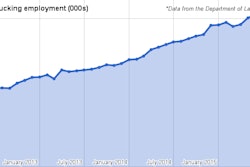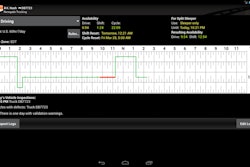 Port truckers within recent years have gone on strike several times over claims that they are misclassified as independent contractors and are being denied employment benefits because of it. (Photo from the Teamsters Union)
Port truckers within recent years have gone on strike several times over claims that they are misclassified as independent contractors and are being denied employment benefits because of it. (Photo from the Teamsters Union)Congress is considering duplicate bills, reintroduced this year, which would crack down on employers that misclassify employees as independent contractors.
The Payroll Fraud Prevention Act would amend the Fair Labor Standards Act to require employers accurately classify workers and provide employees with notice of their classification. Democrats Sen. Bob Casey of Pennsylvania and Rep. Frederica Wilson of Florida introduced the legislation in their respective chambers July 29, which was referred to committees.
Rep. Donald M. Payne Jr., who co-sponsored H.R.3427, said misclassified workers are denied employment law protections, public benefits programs and fair compensation. The New Jersey Democrat estimated up to 40 percent of employers in his home state misclassified workers. While the legislation does not target a specific industry, Payne noted that misclassified port truckers in New Jersey and New York average $28,000 annually.
The bill would make it a violation of the Fair Labor Standards Act to misclassify employees or discriminate against them for opposing their classification. It would impose up to $1,100 for a violation of misclassification, minimum wage or overtime standards and up to $5,000 for repeat or willful violations. The measure would also extend a private right of action to misclassified employees to recover wages and allow double liquidated damages for non-compliance with minimum wage or maximum hour standards.
Additionally, the bill would:
- Make unemployment compensation grants contingent on states meeting certain requirements.
- Directs all divisions of the Department of Labor to report misclassification to the DOL’s Wage and Hour Division, which may provide this information to the IRS and
- Requires that division conduct audits of industries with frequent incidence of misclassification.
H.R.3427 has three co-sponsors while S.1896 has five co-sponsors. It has been introduced three times since 2011.









